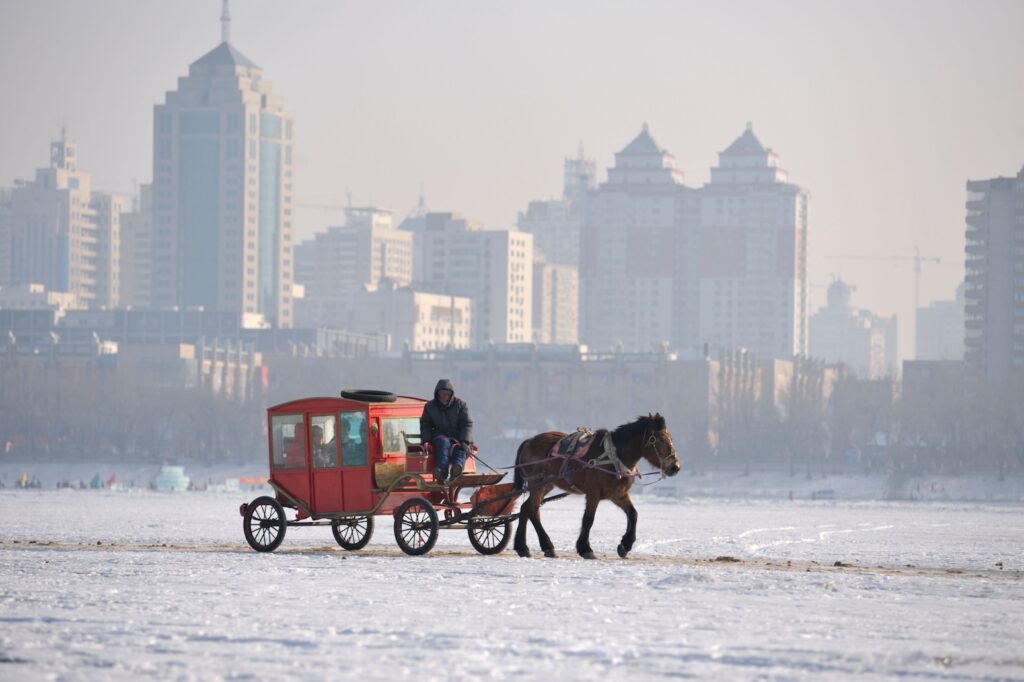Heat Pumps Could Help Cut China’s Building CO2 Emissions by 75%
A New Path to Climate Neutrality
According to a recent report by the International Energy Agency (IEA), heat pumps could significantly reduce China’s building emissions by 75%. Heat pumps are highly efficient machines that provide heating and cooling by transferring heat from one location to another, reducing the need for fossil fuels.
A Low-Carbon Alternative
Heat pumps operate by extracting heat from a source, such as air, water, or earth, and transferring it to a building or industrial process. They use refrigerant fluids to achieve this temperature transfer, resulting in highly efficient and eco-friendly operations. In comparison to traditional heating systems, heat pumps can reduce energy consumption and emissions by up to 70%.
Faster Adoption Essential
To achieve this ambitious goal, the IEA recommends rapid adoption and deployment of heat pumps across China’s building stock. Heat pumps can be integrated with existing building management systems and can be designed to operate effectively in various weather conditions, making them an attractive alternative to traditional heating systems.
Rural China to Benefit
The benefits of heat pumps extend beyond urban centers, with rural areas of China also poised to gain from their adoption. Many rural areas lack access to conventional heating systems, making them reliant on less efficient or polluting alternatives. Heat pumps can bring modern heating solutions to these areas, improving indoor air quality, and reducing exposure to winter-related health issues.
Collaborative Efforts Crucial
Achieving a 75% reduction in building CO2 emissions will require coordinated efforts among government agencies, industry, and consumers. The report highlights the need for policy interventions, such as tax credits, subsidies, and supportive regulations, to drive uptake and adoption. Additionally, consumer education and awareness initiatives will be crucial in persuading building owners and tenants to opt for heat pump solutions.
Conclusion
The IEA’s findings underscore the crucial role that heat pumps can play in reducing China’s building sector emissions. As the world’s largest carbon emitter, China’s commitment to slashing emissions is crucial for a global transition to a low-carbon economy. Rapid adoption of heat pumps can serve as a key catalyst in this transition, providing a cost-effective and efficient path to reducing emissions and mitigating the impacts of climate change.
FAQs
Q: What are heat pumps?
A: Heat pumps are machines that transfer heat from one location to another, providing heating and cooling in buildings and industries.
Q: How efficient are heat pumps?
A: Heat pumps can reduce energy consumption by up to 70%, making them significantly more efficient than traditional heating systems.
Q: Which regions of China will benefit most from heat pumps?
A: Urban and rural areas alike, including those lacking access to conventional heating systems, stand to benefit from the adoption of heat pumps.
Q: What efforts are needed to achieve 75% emission reduction in China’s building sector?
A: Collaboration among government, industry, and consumers, as well as policy interventions and supportive regulations, will be necessary to drive the adoption and deployment of heat pumps at scale.



_2.png?w=150&resize=150,150&ssl=1)
.png?w=150&resize=150,150&ssl=1)


